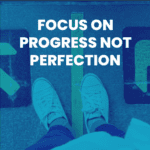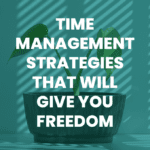Table of Contents
For many people, exposure to toxic productivity starts early.
In school, especially as we get older, we’re rewarded if we spend hours working on homework and projects long after the bell has rung.
In college, it gets even worse—the idea that students will pull all-nighters and take extra courses is built into many campus cultures.
And then you get into the working world, where you’re offered opportunities to work overtime to get ahead. And you’re shamed by your colleagues or management if you leave on time instead of burning the midnight oil.
Toxic productivity is called “toxic” because it eats away at your free time—the time you need to care for your mind, body, and spirit. And once you’ve got into the toxic productivity trap, it can be hard to get out.
That’s what this article is for. Read on to learn what toxic productivity looks like, how it can impact your life, and how to get out of the cycle before it’s too late.
Examples of toxic productivity (to help you avoid the same mistakes)
No one sets out to become part of the toxic productivity culture. More often than not, toxic productivity starts with good intentions.
Maybe you’re trying to get ahead at work.
Maybe you’re working on becoming more independent.
Or you’re hoping to try something new.
There’s nothing wrong with having goals like these, and it’s perfectly fine to dedicate a lot of your free time to achieving your dreams. But if you’re not careful, the desire to achieve can slowly take over more and more of your personal life until, suddenly, you’re walloped with burnout.
Before it gets to that, be vigilant and look out for these examples of toxic productivity:
“If I just push through this break…”
Sometimes when you’re working on something urgent, or something that fires up a lot of passion, it’s easy to skip over breaks. If you’re stressed, even taking a few minutes to stand up and stretch can feel like a bad idea.
But pushing yourself to keep going past breaks is probably the first and most common sign of toxic productivity. Not to mention, this behavior has an adverse effect—rather than making you more productive, you’ll become fatigued and worn out, and you’ll reach a breaking point much sooner than you would if you’d taken those breaks.
“I can skip [meal/activity/plans] and stay up late to finish…”
“If I stay up another hour, I can come in under deadline…”
“I’ll have a big breakfast so I can work through lunch…”
“If I set my alarm a few hours early, I can go to the gym before the meetup…”
These kinds of internal thoughts aren’t harmful every once in a while. But when they become habitual, so much so that your sleep schedule and diet suffer, then you’re in trouble. This is when productivity becomes truly physically toxic.
Once again, this kind of “productivity” will actually make you less productive. Your brain and body need sleep and a nutritious diet to function. Overworking yourself to be productive will only lead to exhaustion, poor performance, more sick days, and decreased motivation.
“I should say yes, otherwise they’ll think I’m lazy…”
Toxic productivity isn’t only something that happens internally. Often, other people—and more specifically, how you want to be perceived by other people—can put you at increased risk with this problem.
If you’re worried about how others perceive you, it’s easy to feel obligated to say yes when something comes up, especially if it’s from someone in a position of power or a person you love.
That’s why this form of toxic productivity can show up in the workplace and in your personal life.
You agree to work on an extra project over the weekend to impress your boss.
You say yes to a baby shower, a book club meeting, a concert, and a hot yoga class with different friends in one week, even though you know your social battery will burn out with all that activity. But you do it because you don’t want to be seen as a “bad friend.”
But here’s the thing: Saying yes all the time can lead to an overloaded schedule, which can cause burnout.
When you burn out at work, you need sick days, or you become so stressed that you underperform. The result? Now your boss really isn’t impressed with you.
If you burn out with friends, you become withdrawn or irritable, leaving your friends hurt or confused.
Are you noticing a pattern here? Toxic productivity almost always has the opposite effect you desire.
“If other people are doing it, I should be able to do it too…”
The human brain is hardwired to make comparisons. Living inside our own mind and perspective is lonely, so we often look to others we admire to make judgments about ourselves.
Though this behavior is natural, too much of it is a giant red flag for toxic productivity.
You may look at your friends, colleagues, or social feeds and think, “Why haven’t I achieved what they’ve achieved?” This act of comparison can lead to a dangerous thought spiral, where you raise others on an unrealistic pedestal and start pushing yourself harder because of the inadequacy you feel.

Remember: Everyone has different experiences, resources, privileges, skills, and abilities. No two people can achieve the same thing in exactly the same way. No one can do everything quickly and perfectly all the time—not even those influencers and online gurus (or Beyonce).
How to stop toxic productivity before it’s too late
Knowing how to spot toxic productivity is half the battle. But you’ll still need to actively fight against it if you want to keep it at bay. Here are a few ways you can keep yourself far away from toxic productivity culture.
Learn how to respect and value your own time
As cliche as it sounds, you really only have one life to live. You deserve to make the most of the time you have, but you won’t be able to do that if you don’t value your own time.
Too often, we measure our time’s value with dollar signs. You make an hourly wage, and therefore your time is worth whatever your boss or manager scrounges up for you. But that’s no way to measure a life.
Think about all of the wonderful things you could possibly fit into this life you have when you have enough time. Making memories with family and friends, going on adventures, growing and learning, or simply watching the world go by. You can’t measure those important things with a calculator or a stopwatch.
The free time you save for yourself—free time where you’re feeling relaxed, happy, and healthy—is the most valuable thing you can seek in this life. Treat your free time like the precious thing it is, and you’ll find it’s a lot easier to…
Start saying no, even if it’s going to disappoint someone
Once you start seeing your personal time as highly valuable, you’ll realize you can’t just give it to anyone who wants it. Otherwise, you’ll have no time left for what you really want to do with your life.
So you need to develop a different skill: The ability to say no and draw boundaries, even if you’re worried it will cause someone else to think poorly of you.
This is no easy task, particularly if you’re a natural people-pleaser and go-getter. But with practice, it will get easier.
You don’t have to be harsh when you turn people down; in fact, you often don’t owe people an explanation for why you’re saying no at all.
If your boss demands you work on a project after closing time, it’s within your rights to say, “I’m not able to stay late tonight,” and leave it at that. But if you’re worried that kind of response may complicate things, there are other ways to gracefully turn someone down.
You can, for example, offer an alternative. “I won’t be able to stay late tonight to work on that project. But if you like, we can look at my schedule for Monday and plan some time to tie up loose ends before the meeting.”
With people you know and trust, you can give an honest explanation. “I’m sorry I can’t make it to the dance recital. I’ve got way too many events happening at once this weekend, and I really needed to carve out some time for myself.”
Try out a few different soft rejections and get ready to pull them out the next time someone makes a grab for your free time.
Related:
Schedule a “sloth day” for yourself at least once a month
Toxic productivity loves to sneak up on us when we’re trying to relax.
You may be playing a video game and think, “I need to put down the controller and get some work done.”
You’ll start planning to cook a delicious meal and instead think, “I’ll just grab a bag of chips and keep practicing.”
If you struggle to allow yourself to truly relax because it feels unproductive, then try planning days of total relaxation in advance. Set aside a 24-hour period where you commit to doing not much of anything. These are days when you sink into a good book, take multiple naps, order your favorite takeout, watch an entire season of a show… whatever you would do when you have nothing to do.
Important note: This includes non-relaxing tasks that aren’t necessarily work-related. You don’t get to use a sloth day to work on your novel or take that course on investing. It has to be a day of taking comfort in doing nothing.
More resources for combating toxic productivity
Unfortunately, toxic productivity isn’t something you can overcome in just a day. You need to remain vigilant and try different strategies to prevent it from pushing you to the point of burnout.
The practices we’ve mentioned here should help you start recognizing and rejecting toxic productivity, but be sure to check out these other resources as well:








